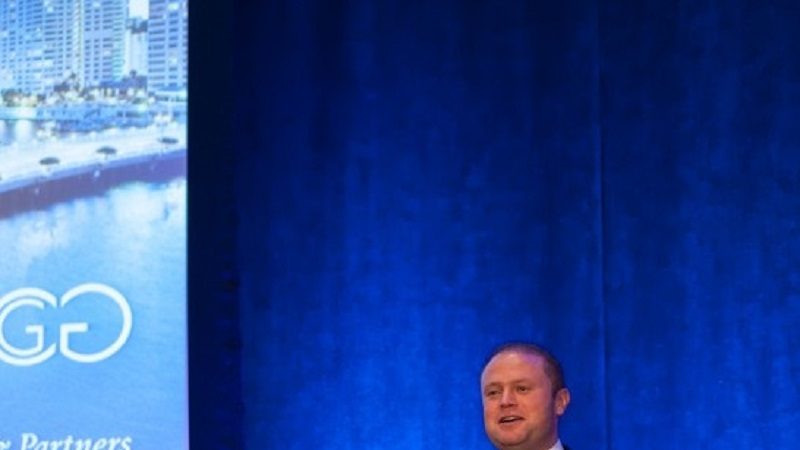The government contract with Henley and Partners contradicts what Prime Minister Joseph Muscat told MEPs investigating the rule of law in Malta in a meeting last December.
A European Parliament report following the MEPs visit to Malta, published yesterday, states that Prime Minister Joseph Muscat denied that government members are contractually obliged to participate in Henley and Partners’ international conferences.
Yet the government contract with Henley and Partners, which was tabled in Parliament in February 2015, clearly states that government members are bound to promote the cash for passport programme, called the Individual Investor Programme (IIP), at Henley’s regular roadshows around the world.
The Prime Minister instead told MEPs investigating the rule of law in Malta that his “participation was rather due to the need to ensure good explanations about the IIP,” according to the mission report .
Article 7.4 of the agreement signed with Henley and Partners states that it is at the concessionaire’s own discretion that from time to time it organises, at its own cost and expense, conferences and events to professionally promote the IIP worldwide.
“The government will ensure to send, whenever requested by the concessionaire, appropriate high-ranking government representatives, or other senior government officials, to speak at the events and represent the Programme and the government.
“The government shall also use reasonable endeavours to arrange that one or several of its investment promotion agencies shall participate in those events as partner, sponsors, or by providing further specialised speaker of the event programmes.”

The PM was addressing a Henley conference in Dubai only days after journalist Daphne Caruana Galizia was assassinated. He was at another Henley conference when the European Parliament was discussing a motion on the rule of law in Malta in which concerns on the cash for passport scheme were raised.
The MEP’s mission report calls on the European Commission to assess whether the IIP undermines the security of the European Union, “fomenting corruption, importation of organised crime and money laundering”. As well as the IIP, the report calls on the Commission to investigate or assess the serious concerns raised over Pilatus Bank, Nexia BT, and the MFSA.
Politicians perceived to be implicated in serious acts of corruption and money laundering linked to the Panama Papers and FIAU reports should be removed from public office and swiftly investigated, the mission report concludes. The Prime Minister’s chief of staff Keith Schembri and Tourism Minister Konrad Mizzi were both found in the Panama Papers to have secretly opened identical structures in Panama.
The MEPs also called on the European Commission to take note of the recent report made by Mapping Media Freedom with regard to SLAPP practices, currently being used by Henley and Partners as well as Pilatus Bank. MEPs called for European legislation that would curtail these abusive practices.
Mapping Media Freedom had signaled the threat of legal action in the US and the UK made by Henley and Partners on The Shift in an attempt to get an article on the company removed, as a threat to press freedom.












